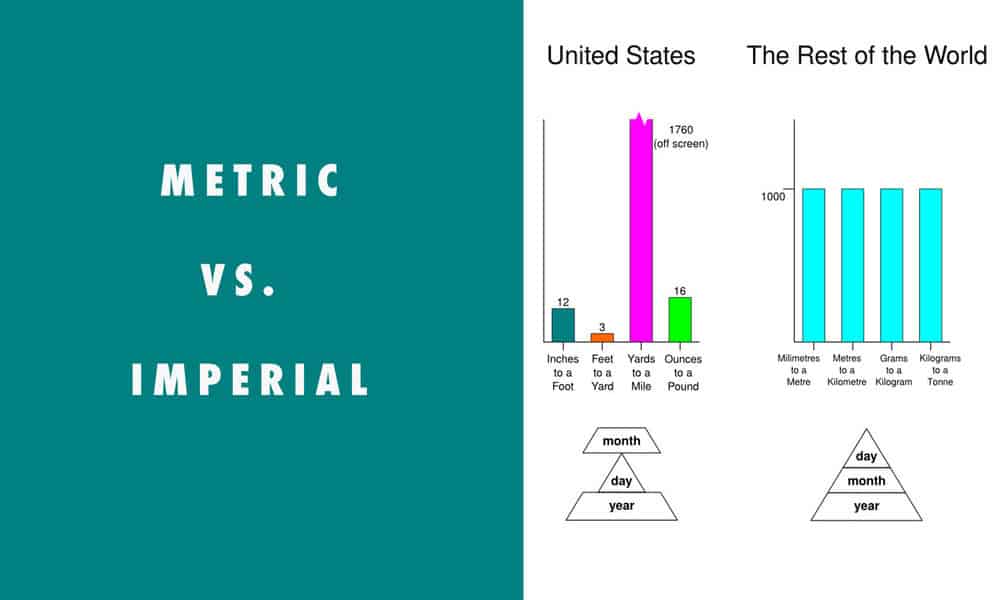Here’s a good trivia question: What are the only 3 countries in the world that do not use the metric system? Everybody knows the good ol’ hard headed USA is in there, but the other two? How about Liberia and Myanmar. If you knew the answer, take a bow. I don’t know any other question where the answer would be the USA, Liberia and Myanmar.It’s called the Imperial system– this mish mash of 12 inches to a foot, 3 feet to a yard, and 1,760 yards or 5,280 feet to the mile– as it was brought over from Great Britain by the early colonists.
The UK had the good sense to ditch it by the mid 1960s, but for the waves of US citizens who arrive in Costa Rica, the sight of measurements in meters and kilometers and grams and kilograms, causes panic and the need to run to a calculator for conversions. If you are one of the estimated 125,000 US citizens who now call Costa Rica home, welcome to the world of metric. Get ready to adjust to measurements in the clean and logical metric system. A few things to keep in mind:
- A meter is about 3 inches more than a yard.
- A centimeter is a hundredth of a meter.
- There are about 2.5 centimeters in an inch.
- A kilometer is 1,000 meters, or about ⅝ of a mile.
- When putting gas in your car’s tank, you will be charged by the liter. Four liters is slightly more than a gallon.
If you’re with me so far let’s move on to temperatures. Celsius or Centigrade is the metric system measuring unit for temperature. It is as clean and logical a system as you could ask for, with the freezing point being zero degrees, and the boiling point at 100 degrees. Meanwhile, los Estadounidenses (and Liberians and Myanmarians) use Fahrenheit, marking the freezing point at 32 degrees and the boiling point at 212 degrees. What nice round numbers they’re not! Yet this is the contrived system we were raised on and are accustomed to.
My youngest daughter was born, raised and schooled in Costa Rica. She thinks entirely in metric. She says her height is 1 meter 73. I am good at math, but need an online calculator to know that she means about five foot eight. One hot summer day we were at the beach, and she commented that it had to be at least 35 degrees. I ran the numbers quickly, using the formula I remember from childhood (X times 2, minus ⅕ of X + 32, where X is the temp in Celsius), so 35×2=70, minus ⅕ of 35, (7), equals 63, plus 32, for the Fahrenheit temp of 95. Wow that IS hot!
Back in 1975, the Metric Conversion Act was signed into US law. It declared the Metric system “the preferred system of weights and measures for United States trade and commerce”. It lasted seven years before being abolished. My main memory of this brief experiment was that Major League baseball fields had the fences marked with the distance from home plate in both feet and meters, and some major interstate highway signs had distances in both miles and kilometers. Here in Costa Rica our highway signs are all in kilometers, though it often seems like the drive is that many miles.
Disdain for the metric system is a peculiarly US American thing, alongside American football, chain restaurants, hot dog eating contests, more guns than people, and a car for every driver. My message to all USA natives coming to Costa Rica is this:
Life can be made just a bit simpler once here by familiarizing yourselves with the metric system.






